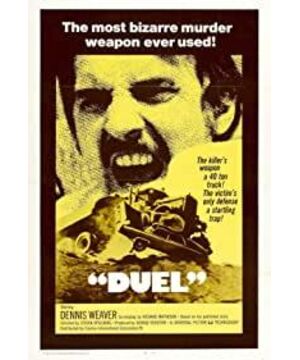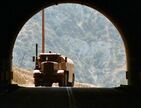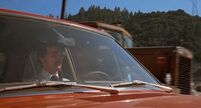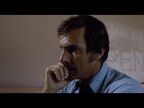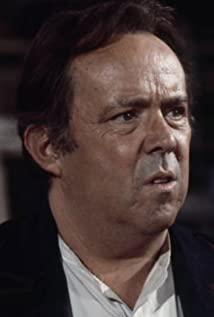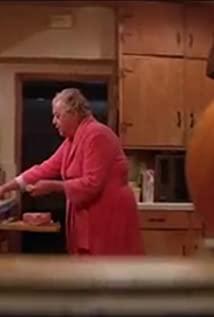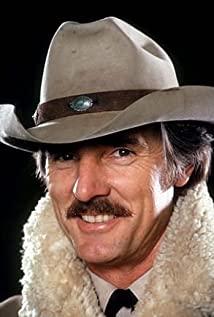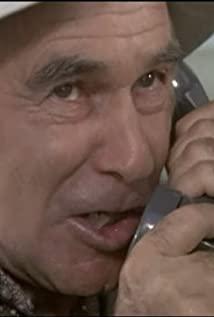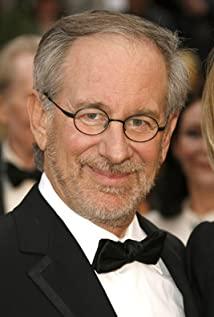Steven Spielberg (hereafter referred to as "Spielberg") is the highest-grossing film director in film history so far. In his film career for more than half a century, he has directed many blockbusters and has also directed Many classics. He is a great director that no fan can get around.
Spielberg is undoubtedly one of the directors who is best at telling stories with images and sounds. Judging from many of his famous works, his narrative skills are so sophisticated that they lack avant-garde so much that many fans have forgotten that he once was. One of the "Five Tigers" of the "New Hollywood Cinema" (the other four: Martin Sykesses, Francis Ford Coppola, George Lucas, Brian De Palma), he also Has made very pioneering films.
"Flywheel" was Spielberg's feature debut and one of his two most "new Hollywood" films (the other being Rampage [1974]).
In fact, "Flywheel" was a TV movie, and it was only 74 minutes long when it aired on TV. After the film was broadcast, the response was good, so Spielberg edited the "extended version" - the 90-minute theatrical version - and sent it to major film festivals for screening, so that Spielberg, who was only 25 years old at the time, began to live in the film. The international film industry has become famous.
"Blood on Flywheel" is a road film. About 90% of the whole film is about a fuel tanker "chasing and intercepting" a car, such a monotonous story, but Spielberg has shot extremely well. Thrilling, exciting, let me watch the adrenaline soaring, and the index far exceeds the "Fast and Furious" series. I think "Flywheel" is the most "fast and furious" road movie in movie history!
The hero of "Flywheel" is a tall and cowardly "little man". As a "little man" desperate for self-respect, when David Mann encountered a tanker, he confidently overtook it. When the tanker caught up, David Mann revealed his true nature, confessed his counsel, and "committed" to overtaking. What he didn't expect was that his "comity" did not exchange for the other's "tolerance", but instead began to "chase and kill" him.
Two cars, one person (the tanker driver never showed his face), with so few "resources", this story is really hard to tell. But Spielberg is worthy of being a master storyteller, adding all kinds of invisible "characters" to the film.
The radio in the car is an invisible "character". This "role" is mainly "performed" by a "domestic man", who talks endlessly about his "grievances" as a "house man" - he has a "big man" in his heart, but he has to be a "Little Man". Likewise, David Mann is a "big man" in appearance, but a "little man" in life. This correspondence between the internal and external contrasts makes people smile.
The wife on the other end of the phone is another invisible "character". Although he can't see it, but judging from the voice on the other end of the phone, it can be seen that David Mann's wife is a very rare good wife. The day before, she was almost raped by her husband's friend, but her husband didn't dare to act decisively. Even so, she did not overly condemn her husband. She knew and accepted that David Mann was a "little man," but she didn't want to hear his excuses. Wife's "maternal brilliance" once again highlights David Mann's "little man" image.
In addition to the invisible "characters", there are also some gag characters.
Like the gas station employee who knocked on the hood of David Mann's car and asked him if he wanted "maintenance"; like all the "suspicious people" in the restaurant, including the man who beat up David Mann "Mr. Sandwich"; such as the school bus driver and the gang of "tricksters" who think "David Mann is more abnormal than the tanker driver"; such as the passing old couple who are desperate for help ; like the woman at another gas station and her animals; …
In the tragic encounter of David Mann, all these supporting roles constitute a prophecy or metaphor for "Blackberry (Mold) Day". It can be said that Spielberg accurately described the most unfortunate day in the life of a "little man".
There is no way to hide, there is no way to avoid it. The "little man" can only fight back. In the end, he "conquered" the tanker driver, defeated his fear, defeated himself, and completed a man's coming-of-age ceremony! In a sense, "Flywheel" is also a rite of passage for Spielberg's film career.
Some people say that the oil tanker in the film symbolizes the American fear of the Vietnam War, the fear of the unknown. But from the perspective of "little men", it is more like a man's nightmare, a nightmare that every man must overcome when he grows up!
Unlike many of Spielberg's famous works, "Flywheel" is a "new Hollywood movie", and the film language and film narrative are full of energy. The alternate use of subjective shots and objective shots in the film, collision, contrast, and complementarity, break through the stereotypes of predecessors and create a strong dramatic tension, which is unique in the "New Hollywood Films". In terms of film narrative, Spielberg deliberately undermined the so-called "integrity" of the story, using omissions, always "absent" the tanker driver, and "absent" the motive of the crime. In the "ideological" aspect of the narrative It is an innovation.
Three years later, Spielberg continued his exploration of film language and film narrative in Rampage. Another year later, in 1975, "Jaws" came out. Spielberg, who was under 30 years old, achieved amazing commercial success, but he also began to drift away from "new Hollywood movies".
View more about Duel reviews


